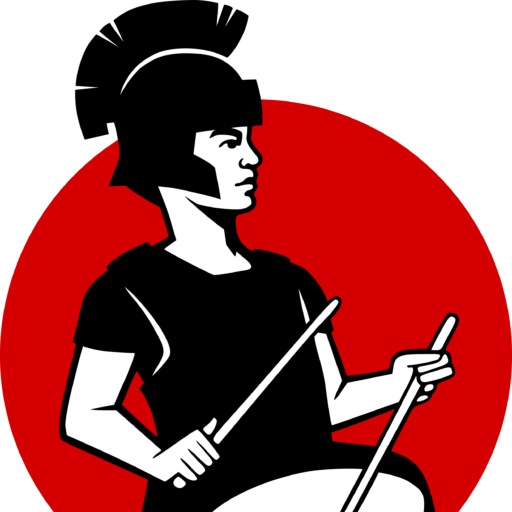
Hello fellow gamers!
The Ancient Mediterranean Seas! An epoch full of myths. Endless coasts to be discovered and conquered. But the ancient empires were also Empires of trade and commerce in search of rare goods and grain to feed their people at home. Here it is: The game series that covers this fascinating era. Move your armies and ships over a vast map and lead your empire to the Golden Age.
Connect with us on Facebook, Instagram, Twitter or subscribe to our newsletter here at soundofdrums.org to be informed about the start of the crowdfunding campaign.
The Development Chart
Today we introduce you to two central concepts of the game series: “Contested” hexes and the Development Chart.
If the Action Cycle (please refer to our early blog post on the Action Cycle) is the engine of the game, the development aspect of the game is the frame from which players need to perform as efficiently as possible. There are four sections on the chart: Military, Fleet, Economics and Cultural/Political. The effect of developing their empire in these sections are obvious: Your units get more powerful, your ships increase their range, your economy increases your income and lastly by developing your city state in the cultural segment you will be able to become a mighty empire or a great civilization.

But let’s take a closer look on the table: The trained observer will notice that the costs associated to reach new development phases are different in each section. Plus, you might want to advance very quickly on each of the four segments to benefit from the advantages and ideally ultimately reaching the “Golden Age” status which earns you 1 Victory Point.
The cultural segment seems pretty cheap. Your goal should be to be able to build monuments. These can easily bring victory in a close game, when you are short of 2 or 3 Victory Points. The problem by advancing quickly on this segment is, that you have a period where you are very vulnerable to enemy attacks. The transit from Kingdom to Empire will mean that all your units have a negative modifier in combat. Your people fear you will become a Tyrant and their motivation to eventually die for a tyrant in battle is very low.
If the cultural development seems cheap, the contrary is true for economic development. It is the most expansive section on the chart, but on the other hand it rewards you by increasing your income. Economic development does not make your units better, it does not help to expand your territorial control. But money gives you other freedom: You can afford to offer armistice. Money can keep your opponents at bay. Money is power!
To develop your fleet, will give a great mobility on the map. You can easily reach all areas on the map and you are able to potentially threaten all your opponents with ships with a range of 7 hexes that transport legions. The downside of it is, that a good developed fleet is expensive in maintenance and the construction of new ships is expensive.

The same goes for land units (for simplicity we’ll call them all “Legions”). The more you have and the more powerful they get, the more difficult it gets to supply them. Which brings to another nice aspect in the game: Everything is linked. The merchandise “Grain” doesn’t generate much income. But you will truly appreciate it once you need to supply a lot of legions on the map. There is added layers of complexity in the key aspect on “everything is linked”: There are obvious conditions to be fulfilled like having “Wood” and “Wool” to be able to build new ships. Others are more tricky: To be able to develop on the cultural section you need to have different luxury merchandises. These are rare. To be able to reach “Banking” on the economic chart you will need control of one of the rare “Silver” trading posts. This also means that if one player tries to gain control over most of the “Silver” on the map the other players are in trouble. Everything is interlinked with knock-on effects on each.
All this being said, we conclude: You need to manage a lot of things and best all at the same time – which of course is not possible. The four development sections are well balanced. You will need to decide early on to which section you want to set your focus. And money is a finite source, you will also need to decide how you want to invest in buying new units, building fortresses, pay for stability, create new trading posts, etc …
So, from the very beginning of the game you will have a lot of decisions to make! You will be under constant pressure!
The concept of contested hexes
Another nice little feature in the game which has significant and huge consequences, is the concept of “contested hexes”. War was and is always a costly affair. The Peloponnesian War lasted roughly 30 years. The number of huge battles is low, surprisingly low. We wanted to transfer this into the game. What do armies and fleets do, if they don’t constantly fight battles? We decided on two things: A huge army is always something threatening. The pure existence of a large enemy force is disturbing. You can’t ignore it. You either try to create a large force yourself or you are able to offer and pay for armistice.

Smaller forces that are not countered can be very annoying. They can occupy your trading posts. Even if garrisoned and with no following fight, the trading post stops to generate income. If not garrisoned an enemy unit can simply take this trading post over. Which is annoying for the player who loses his trading post but it is even more annoying because it doesn’t need or require an investment to take over an ungarrisoned trading post. This a nice concept from which to be aggressive with the need to initiate battle. As an aside: You might know that resolving combat is without any randomness if you stick to the rules of the game without using any expansion or the “Event and Hero Cards”.
Please stay in touch with us for more stories about this great game series.
Take care and thanks for your interest in our games! See you in the next blog post,
your Uwe Walentin.

The “History of the Ancient Seas” Kickstarter campaign was successfully funded!

